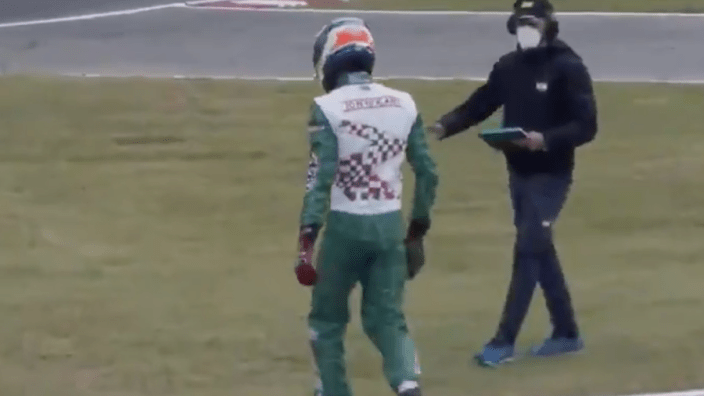Seven fatalities in eight years is a number beyond what is acceptable yet it is the reality of the Melbourne Cup, the “race that stops a nation”.
Some hours ago, the pre-race favorite, horse Anthony van Dyck (IRL), had to be humanely euthanized after he sustained a fetlock fracture in the final stretch of the race while following the leaders.
Editors wonder why the Melbourne Cup is marred by tragedy basically every year but this is no coincidence: horses are exposed to death with the primitive and cruel practice of ballast handicapping.
Handicapping means adding extra weight ballast for the horses to carry so as to make it more difficult for the pre-race favorites to win and hence make the racing closer and the bets more attractive.
This practice exists in different areas of the world but it is more brutal in Australia. Anthony van Dyck was carrying 58.5 kilos, one of the largest weight penalties of all time.
In sporting grounds, handicapping is simply an unfair success burden, where winners are penalized for being good. That goes against what sport should be about.
But the impact is not only that it produces fake winners, but that we are dealing with lives of living beings: animals that feel and suffer, elite athletes that ought to be protected from injury, especially because injuries in horses usually end up in euthanasia.
It might be annoying to see Toyota being penalized for winning at the FIA World Endurance Championship but no one dies there if they lose.
If we go back to the January 28, 1957 edition of Sports Illustrated, the “Jimmy Jemail” controversial question of the week was: “How much weight can a race horse carry without the danger of breaking down?”, and while there are different responses, trainers seem to already know, more than sixty years ago, that carrying over 130 pounds is exposing your horse to breaking down.
With the jockey, Anthony van Dyck was carrying way more than that. Fast forwarding, scientific studies (Horsetalk) have concluded that there is a threshold of 15% rider-horse weight ratio for satisfactory performance and other studies show that the horse’s physical effects are very significant when carrying 25% of their weight (Journal of Equine Veterinary Science).
With all of that evidence, it is clear that the practice of handicapping success must stop, especially at such extreme values. What we are gambling with here with are lives, and that is just not acceptable.
At the same time, it is misguided to call for horse racing to stop altogether, since it is not an inherently inhuman practice.
Instead, attention should be given to what is feasible and can save lives (a racing horse reportedly dies every three days in Australia – Animals Australia), such as prohibiting ballast or that horses are sent to slaughterhouses after retirement, which is a primitively legal practice in Australia (The Guardian).
In the meantime, Rest In Peace Anthony van Dyck (2020), The Cliffsofmoher (2018), Regal Monarch (2016), Red Cadeaux (2015), Admire Rakti (2014), Araldo (2014) and Verema (2013), all victims of the Melbourne Cup (7 News).




